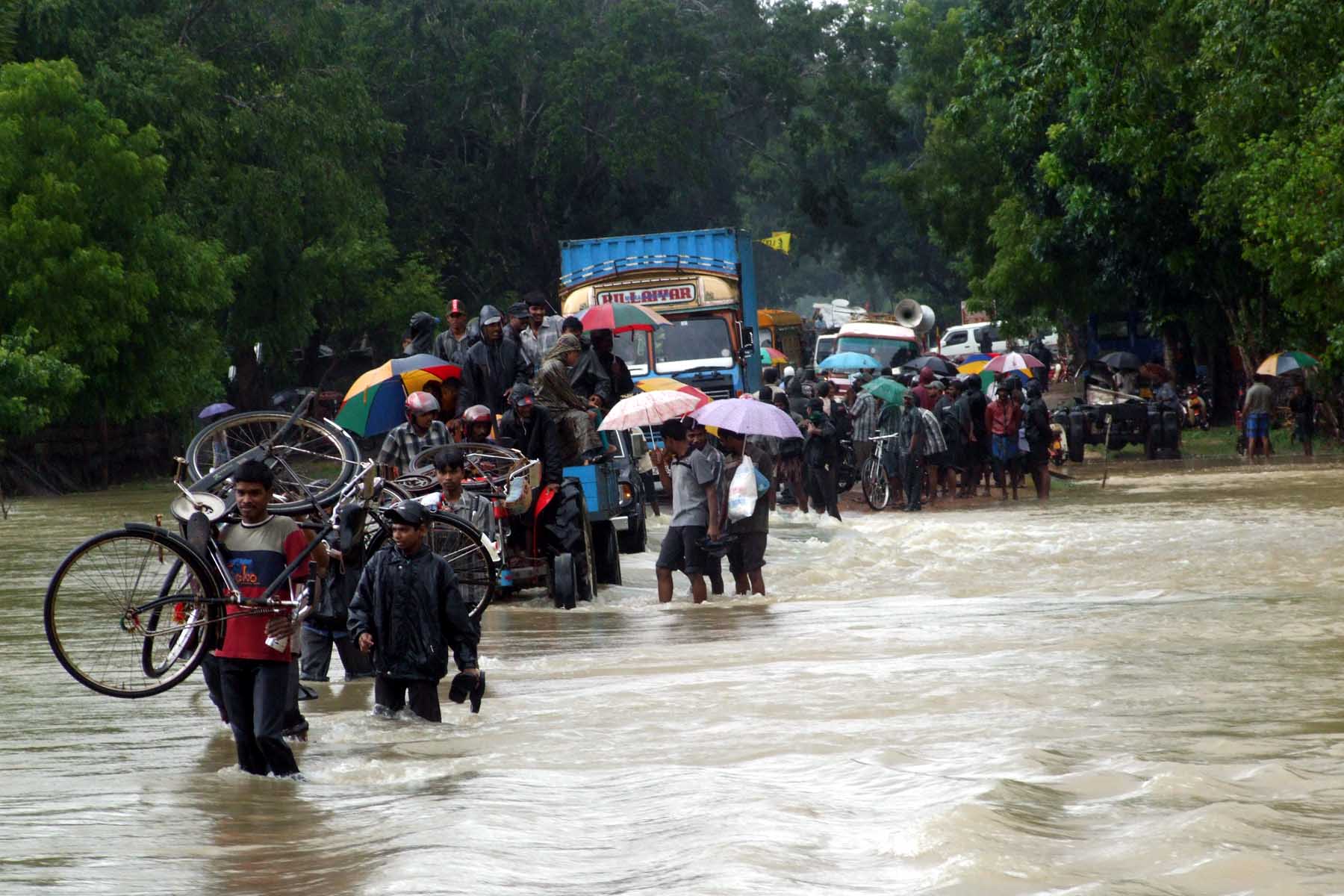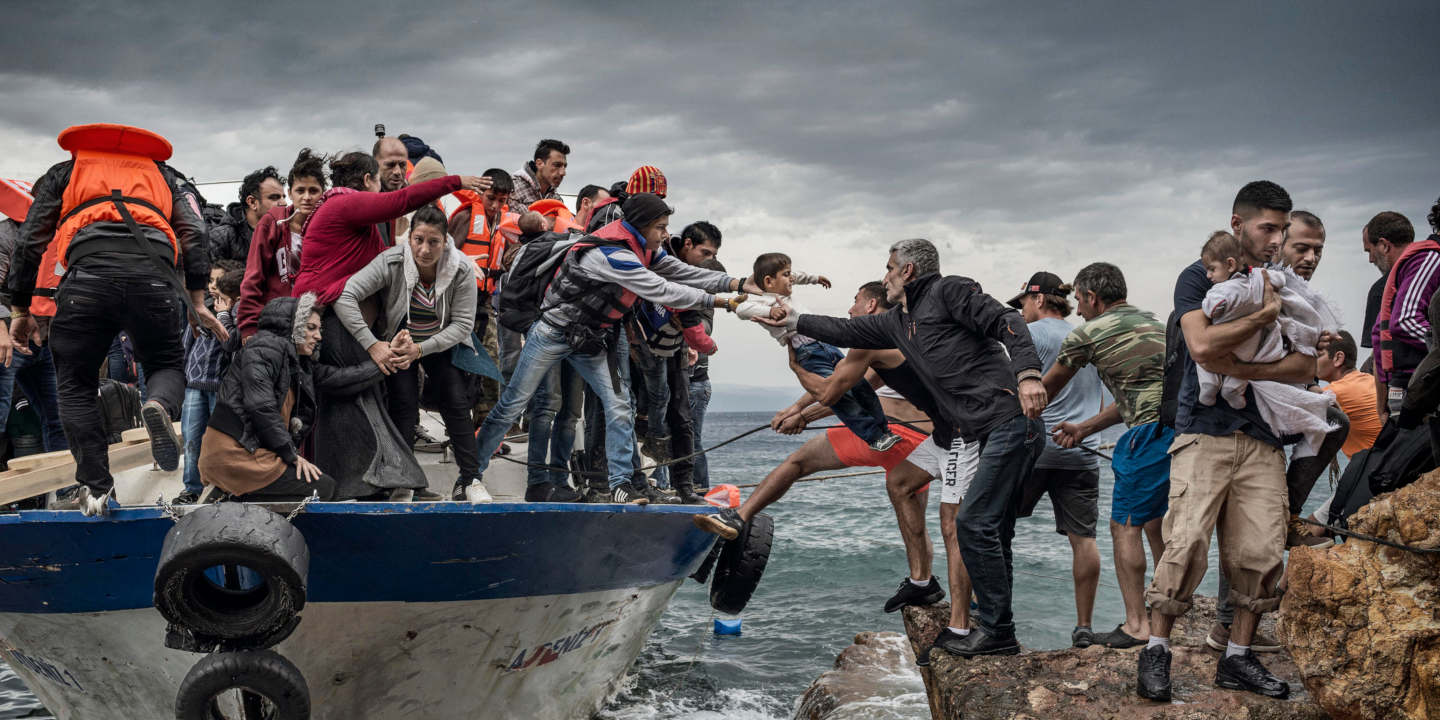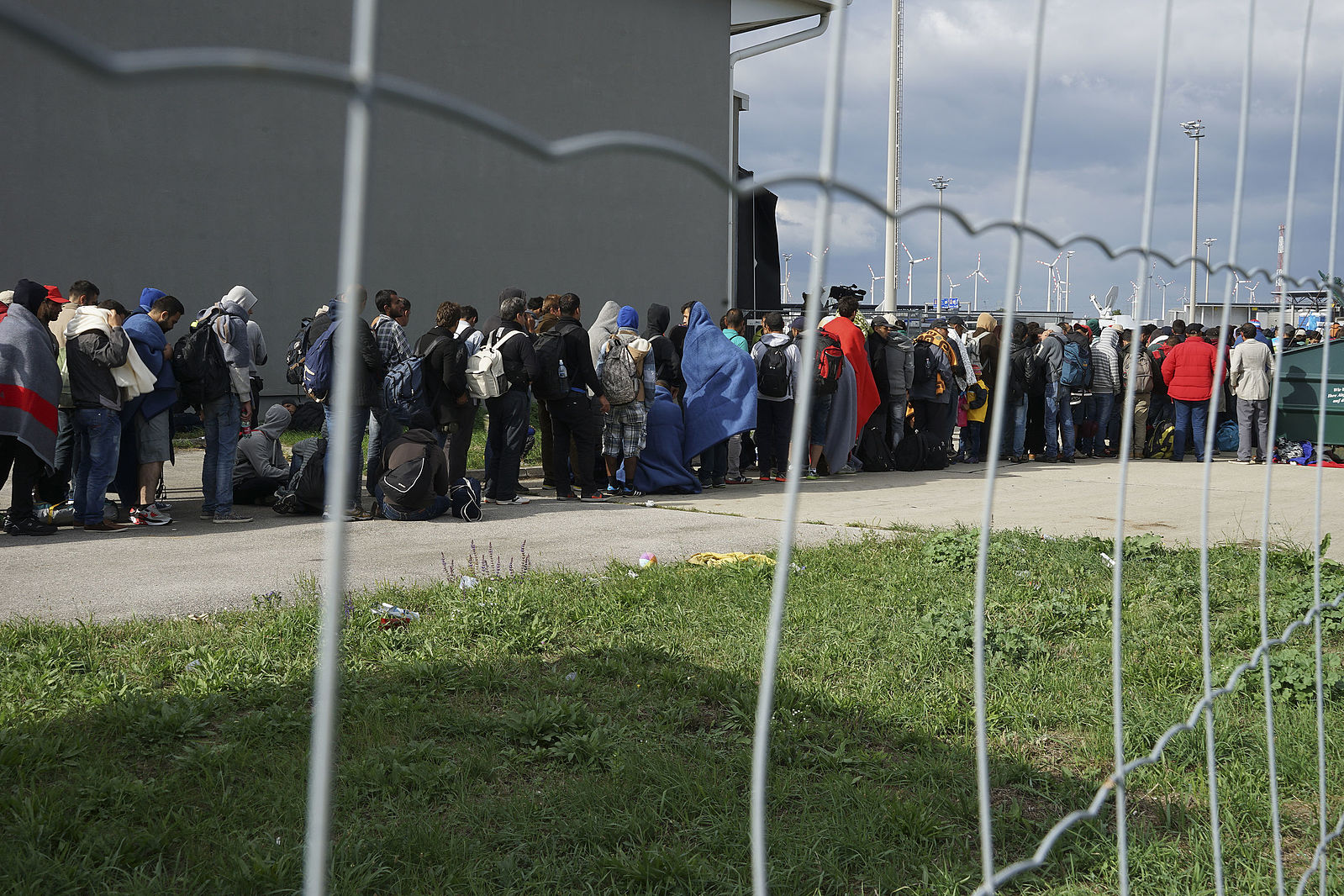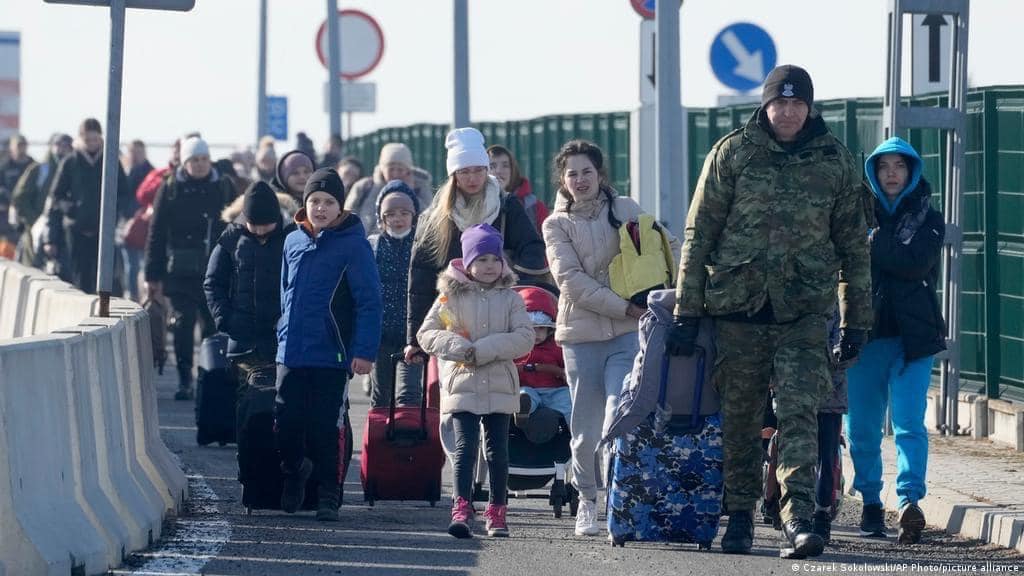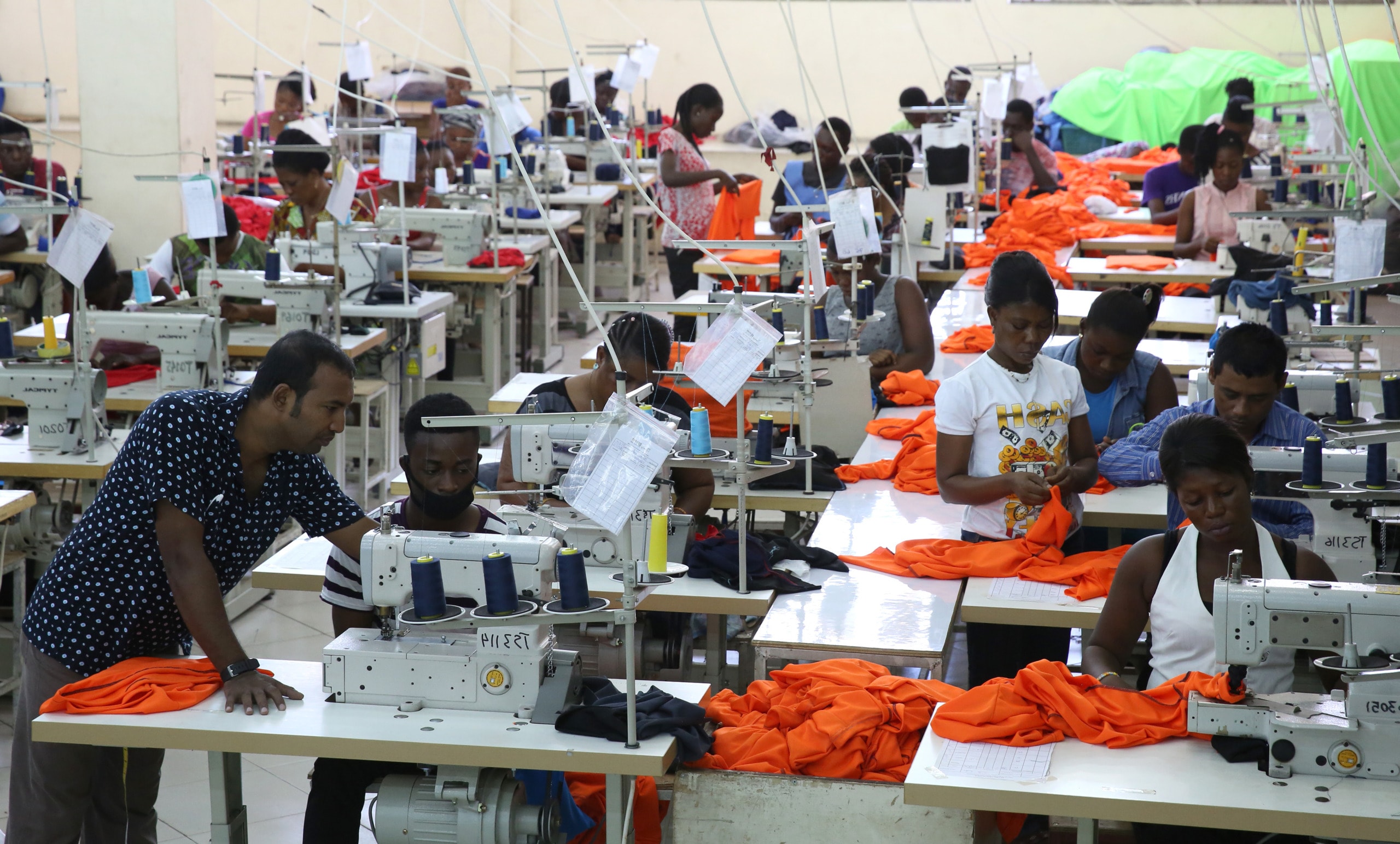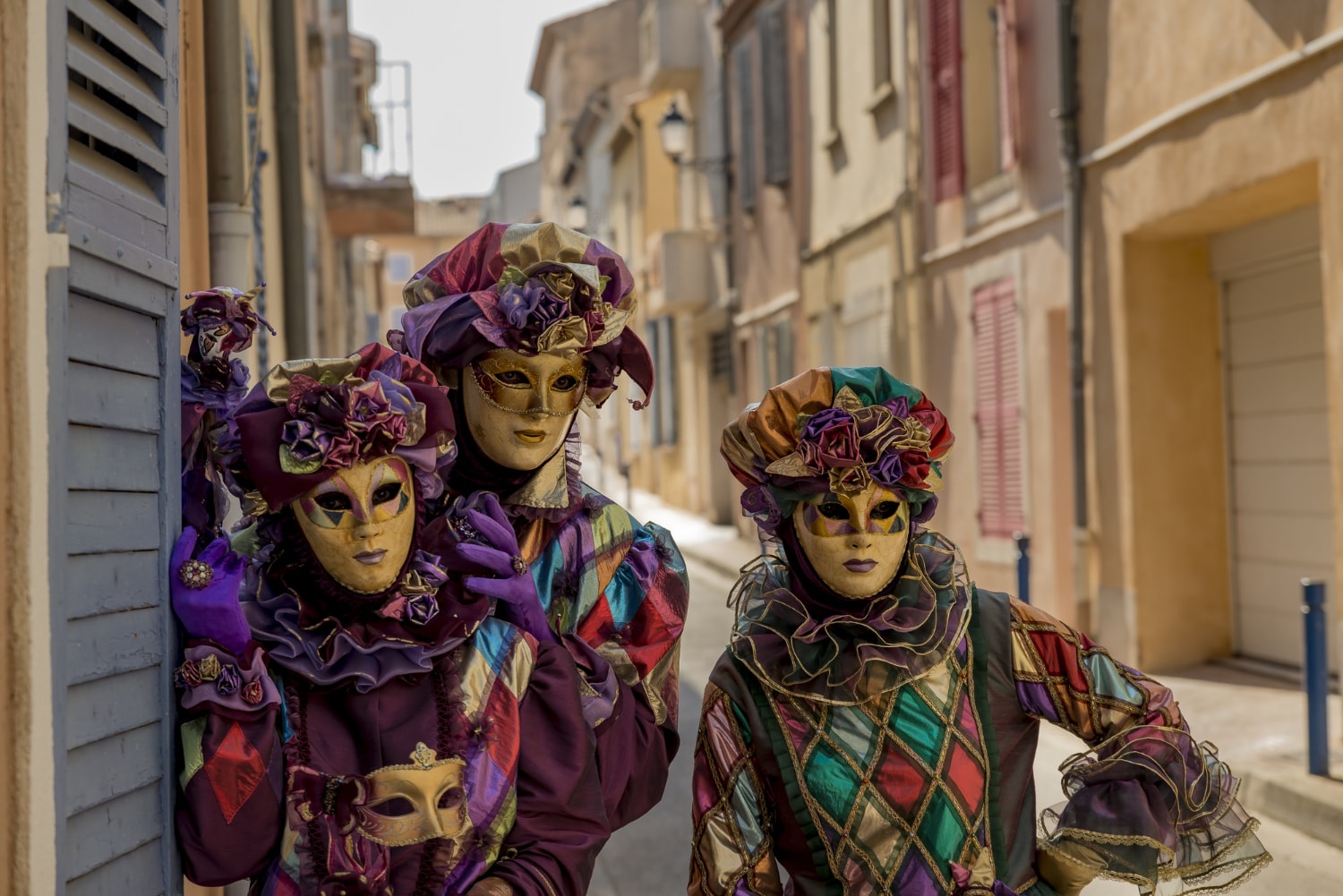The top UN job in defense of human rights did not remain empty for long. UN Secretary-General Antonio Guterres was quick to replace Michelle Bachelet, former President of Chile who retired from her position as High Commissioner for Human Rights on August 31 with his trusted political adviser and long-time colleague, the Austrian Volker Türk.
Volker Türk quickly reacted with a thank you tweet reaffirming his commitment to the Universal Declaration of Human Rights:
Deeply honoured to be appointed @UN High Commissioner for Human Rights. I feel a deep sense of responsibility & will give it my all to advance the promises of Universal Declaration of Human Rights for everyone, everywhere. pic.twitter.com/bEmcl90bZJ
— Volker Türk (@volker_turk) September 8, 2022
Türk came from a long and brilliant career at UNHCR, and appropriately his nomination was welcomed with a celebratory tweet:
On behalf of UNHCR colleagues I warmly congratulate @volker_turk on his appointment as @UN High Commissioner for Human Rights.
We know well his long experience, great competence and true passion.
We look forward to supporting him as he stands up for everybody’s rights. pic.twitter.com/AF5WITa65N
— Filippo Grandi (@FilippoGrandi) September 9, 2022
On September 8, the UN General Assembly approved Türk’s nomination, putting an end to a misplaced controversy that had oddly arisen among a number of human rights activists who had indicated they preferred a celebrity in the job to somebody with proven experience and that they doubted his human rights record.
This controversy was reported in the press, more about it in a moment. But first, who exactly is Mr. Türk?
Volker Türk’s track record: A jurist with 22 years of experience in the UN
One can only commend Guterres for the speed of his decision, as the High Commissioner for Human Rights is unquestionably one of the most politically sensitive top positions in the whole UN system. And he picked a man with the right track record and experience, an Austrian jurist with 30 years of experience working in the UN system.
“Mr. Türk has devoted his long and distinguished career to advancing universal human rights, notably the international protection of some of the world’s most vulnerable people – refugees and Stateless persons,” the UN chief said in a statement.
Let’s take a closer look at his record.
Mr. Türk, 57 years old, born in Linz, Austria, has proven legal experience with a focus on human rights. He holds a doctorate in international law from the University of Vienna and a Master of Laws degree from the University of Linz, Austria, and has published widely on international refugee law and international human rights law.
And he is well-prepared to operate within the international community: He is fluent in English, French, and German and has a working knowledge of Spanish.
He joined UNHCR in 2000, where his career quickly took off. From 2000 to 2004, he was Chief of the Protection Policy and Legal Advice Section at UNHCR Headquarters in Geneva; from 2004 to March 2008, he occupied various positions in many parts of the world, including in Malaysia, Kosovo, Bosnia and Herzegovina, the Democratic Republic of the Congo, and Kuwait; from April 2008 to September 2009, he led UNHCR’s structural and management change process; then from September 2009 to February 2015, he served as the Director of the Division of International Protection which led to his appointment as UNHCR’s Assistant High Commissioner for Protection.
While at UNHCR, Türk worked relentlessly on the protection of refugees. He has dared to challenge the controversial European government policy to return asylum seekers to the first European country they entered; and he played a key role in the development of the Global Compact of Refugees.
The following video is well worth watching to get a sense of what kind of person he is. It shows him in action at a 2017 meeting organized by the Institute of International and European Affairs (IIEA), where he brilliantly displays his deep knowledge of the refugee issue and humanitarian law:
When Guterres picked him, Türk had been working in the Secretary General’s Executive Office in New York since 2019, coordinating global policy work.
As his Assistant Secretary-General for Strategic Coordination from 2019 to 2021, Türk was already deeply involved in human rights as he ensured UN system-wide coordination in the follow-up to the “Call to Action for Human Rights”, one of Guterres’ flagship policies launched on 24 February 2020 at the opening of the 43rd Session of the Human Rights Council.
What is notable here is the goal of this new “Call to Action”: It is meant to bring the human rights pillar of the United Nations mandate to the forefront of its SDGs agenda. An expanded definition of human rights is envisaged, including promoting sustainable development, gender equality, justice for victims of climate change, and other “new frontiers” in the human rights field.
Türk also played an essential coordinating role for Our Common Agenda, the UN Chief’s landmark report providing a roadmap to tackle the world’s interconnected challenges. The Agenda was presented by Guterres to the UN General Assembly in September 2021, and he described it as “a starting point for our joint efforts to improve global governance together on foundations of trust, solidarity and human rights”.
There is no question that among UN staff with legal experience, he is the person best placed to take the UN’s top Human Rights position.
Yet some question his human rights track record
A number of human rights activists reportedly felt that Türk lacked a robust track record as a human rights advocate.
In a phone interview, Richard Gowan, the U.N. director for the International Crisis Group, said:
“He is genuinely an exceptionally smart guy, and I think has genuinely been responsible for bringing some intellectual focus to the secretary-general’s office. So, the big question about Volker is what is his conception of human rights. He has a genuine interest in advancing social and economic rights, and he is not going to necessarily be focusing solely on political rights.”
Some activists cannot forgive him for a declaration he made in June 2019 in the course of his brilliant final address as assistant high commissioner at the Standing Committee, sharing some “broader reflections on protection” and the role of UNHCR:
“We cannot deliver humanitarian assistance while also conducting investigations into violations of human rights or humanitarian law, notably in active conflict situations. This invariably would compromise our access to communities in need and put humanitarian personnel at risk.”
Yet, he has a point. He is referring here to a particular context, that of “active conflict situations” when negotiating for the establishment of “humanitarian corridors” that are indispensable for safely sending humanitarian aid to victims, and in many cases, saving their lives. In such notoriously complex negotiations, often with ruthless warlords, bringing up the need for human rights investigations can muddle up the issue and even backfire, causing the negotiations to fail.
So which is more important: Saving innocent lives or pushing for human rights even when the conditions do not permit it?
A looming problem with China
When Türk succeeds Bachelet he will become the eighth High Commissioner to lead the Office of the High Commissioner for Human Rights (OHCHR) since it was established in 1993.
And right at the start, the job won’t be easy: He will have to deal with a “hot potato” left behind by Bachelet whose Office on the very day she retired issued a damning human rights report on Uyghur discrimination that instantly enraged China. The 45-page report (PDF) provided evidence of China’s systematic abuse of ethnic minorities in the Xinjiang region, finding that abuses against mostly Muslim Uyghurs had their source in the government’s ‘anti-terrorism law systems’.
More importantly, the report doesn’t stop there. It calls on China to immediately release “all individuals arbitrarily deprived of their liberty”, clarify the whereabouts of those whose families have been unable to locate them and undertake a “full review” of its laws on domestic security and repeal all discriminatory laws.
As soon as it came out, human rights activists wasted no time, calling on Türk for action.
New York-based Human Rights Watch asked him to immediately follow up on “Bachelet’s report” and push for the establishment of a U.N. investigation into China’s abuses of the Uyghurs, and also be ready to call out human rights abuses in the United States and violations by US allies.
Meanwhile, the Uyghur Human Rights Project took to Twitter:
The @UyghurProject welcomes the appointment of @Volker_Turk as new High Commissioner for Human Rights.
The new HC should take up the @MBachelet Uyghur report push for accountability for perpetrators.https://t.co/nDHcF7Vkac
— Uyghur Human Rights Project (@UyghurProject) September 8, 2022
China, on the other hand, reacted as to be expected, with a vigorous denial. “It is China’s hope that Mr. Türk will lead the office in strictly abiding by the principles of objectivity, impartiality … and non-politicisation,” China’s Deputy UN Ambassador Dai Bing told the General Assembly.
The United States which had backed Türk’s nomination from the start took a somewhat neutral position with Deputy US Ambassador to the UN Lisa Carty saying that Türk “must serve as an independent, impartial, and unwavering voice for human rights issues around the world”.
This is right of course, but it also (probably involuntarily) underlines the limitations of the UN High Commissioner’s role: It is indeed “an unwavering voice for human rights”, but it’s only a voice. The UN human rights office, OHCHR, has no “teeth” to enforce its recommendations.
There is no way China can be forced to obey the injunctions of the human rights report, whether it is Michelle Bachelet behind it or now, Volker Türk. The situation could be different if it weren’t for the gigantic country that it is. A smaller country might be more inclined to do something under the pressure of public blame, but a large, autocratic country like China certainly won’t.
OHCHR’s greatest power is in exposing human rights abuse, providing convincing evidence, and indicating the way out, how to address the issues and resolve them. But UN member countries are independent and can do as they please – and, as in the case of China, simply ignore the report.
Why a “celebrity” or political figure at the helm of OHCHR cannot solve the problem of “lack of teeth”
Human rights activists, when they first heard that the Secretary-General was nominating Volker Türk, wrung their hands, saying that rather than a legal technocrat, what was needed to push forward the human rights agenda was a “celebrity” or a political figure.
One human rights advocate who spoke on condition of anonymity reportedly asked “Is this the best we can do?Why not a Merkel or Michelle Obama?” referring to Germany’s former chancellor, Angela Merkel, and the former U.S. first lady.
Setting aside for the moment the fact that neither of those ladies has a legal background and an experience of human rights that approaches Türk’s, one may well question the (almost naive) belief that previous high commissioners with political prestige, like Arbour of Canada or former Irish President Mary Robinson, were more successful in their inevitable clashes with big powers over human rights issues.
For his critics, Türk doesn’t possess the standing of previous high commissioners.
No political pizzazz. But is it needed?
As we have seen above, OHCHR lacks teeth, and no amount of political prestige can overcome that weakness.
Mary Robinson was probably the most prestigious and successful High Commissioner for Human Rights we have seen (at least so far). She served as High Commissioner from 1997 to 2002, often achieving some breakthroughs (for example, when she visited Tibet) but she still had to leave under a cloud, pressured by the United States government. That led her to exclaim “America forced me out”.
This outing happened because she had criticised the US for violating human rights in its war on terrorism; and also because of the disastrous 2001 World Conference against Racism in Durban, South Africa that she had presided.
That conference almost collapsed under the weight of a Syrian-led campaign for delegates to declare Israel a racist state, and she was widely condemned in the US for the perceived anti-semitism that had emerged there. Yet, as president of that conference, she had nothing to do with that episode and was not in a position to stop it, only contain it.
It is worth recalling the episode as it neatly highlights the limits of the job. And shows that even a political figure with a sterling reputation like Mary Robinson’s could do little.
What the job requires is legal know-how – including a deep understanding of human rights – and a capacity to navigate the tricky diplomatic waters of UN negotiations. And those are precisely the qualities that Volker Türk brings to the job.
Whether he will be able to deliver remains to be seen, but he certainly appears to be the right man for one of the most delicate and difficult positions in the whole UN system.
Editor’s Note: The opinions expressed here by Impakter.com columnists are their own, not those of Impakter.com — In the Featured Photo: Volker Turk at a press conference when he was Assistant High Commissioner, UNHCR in 2018 Source: Wikimedia cc



